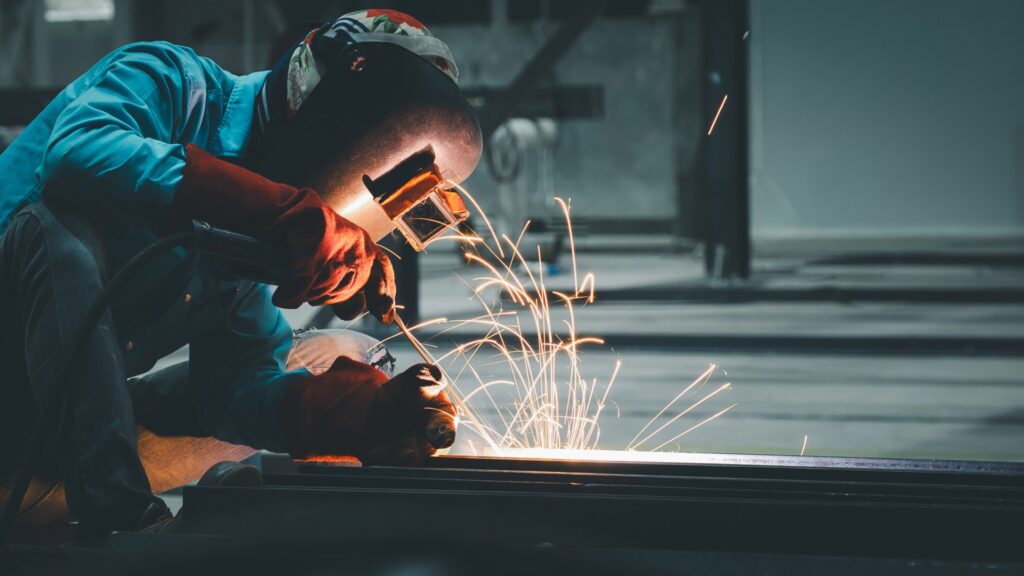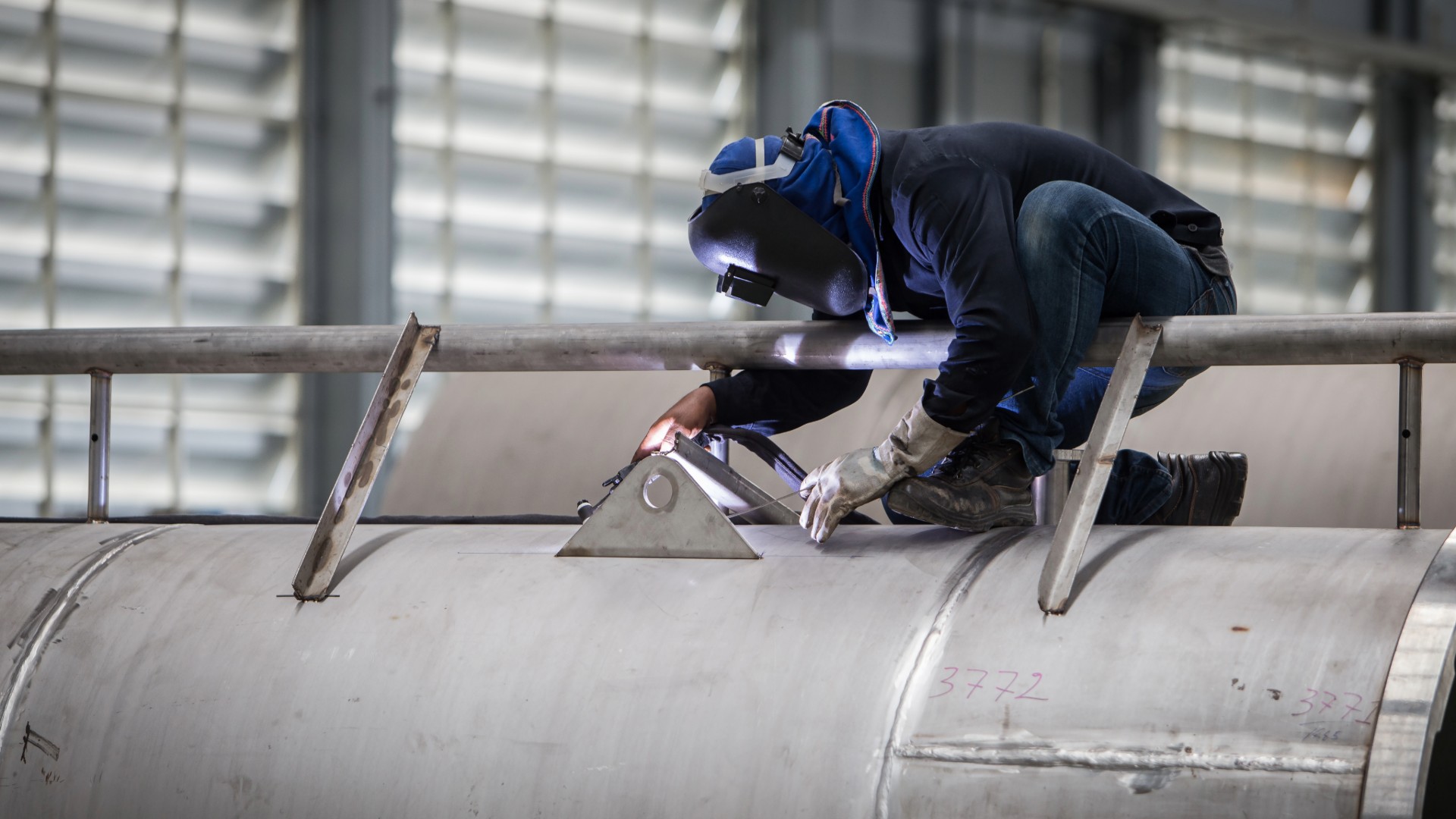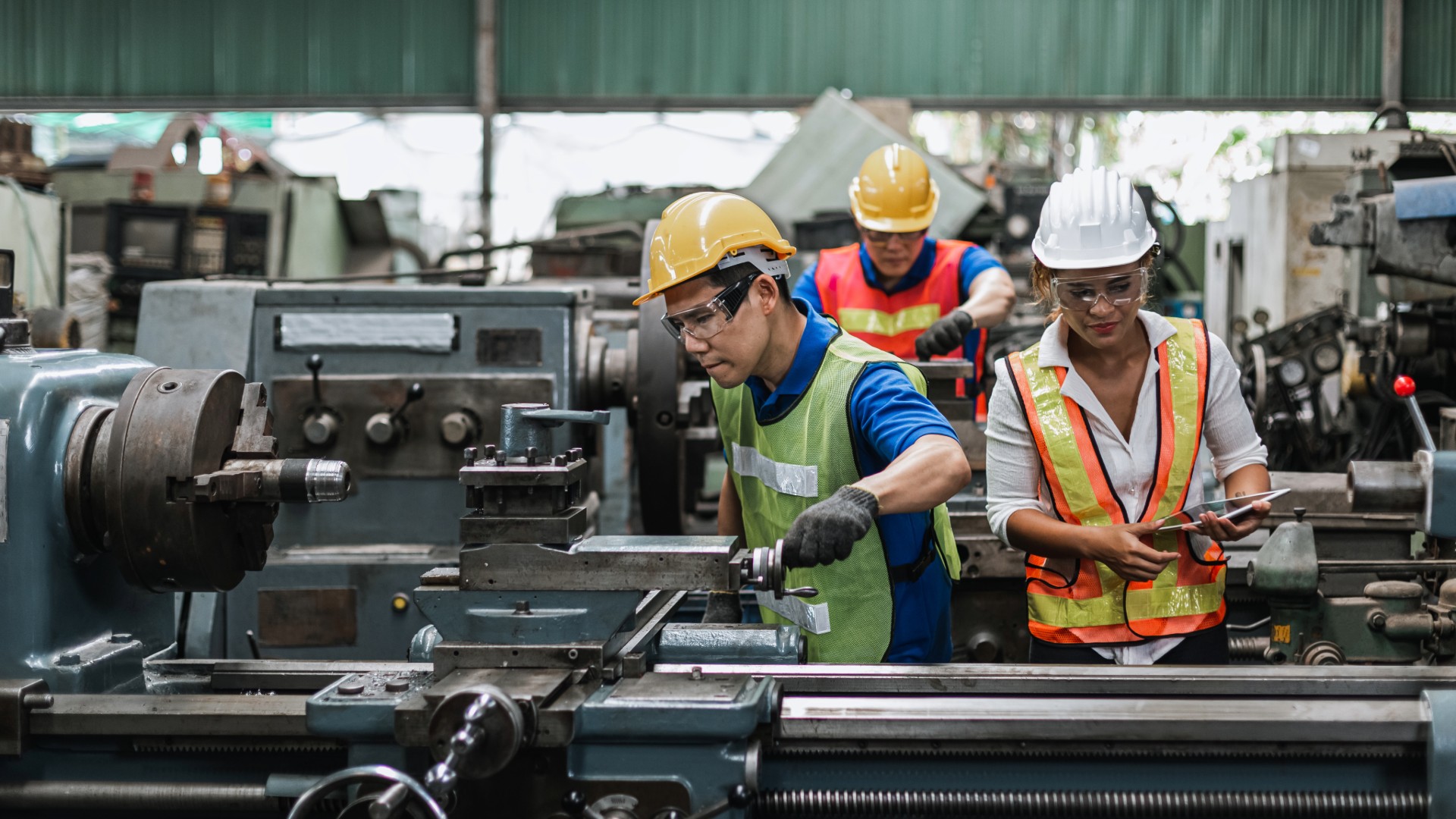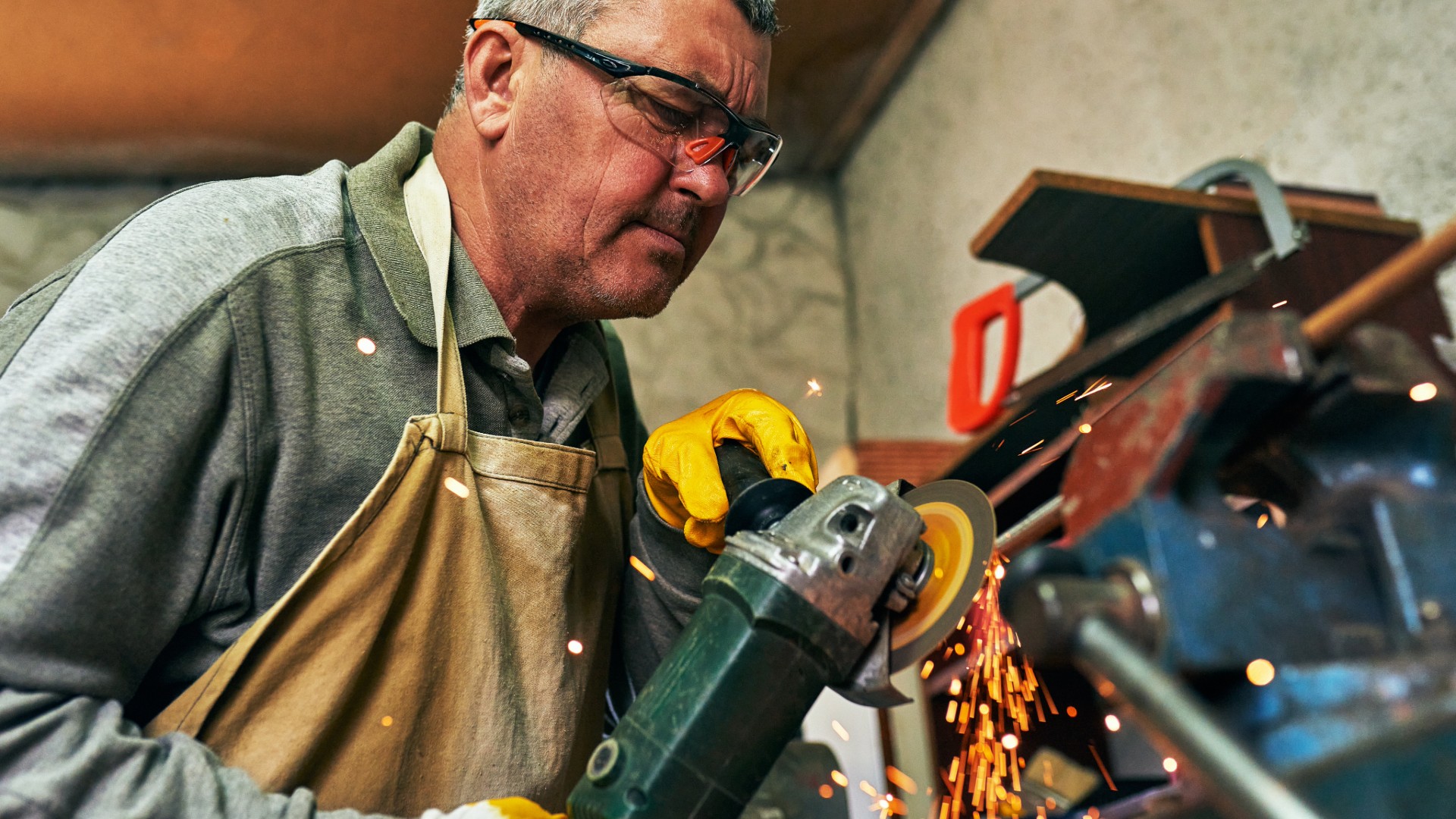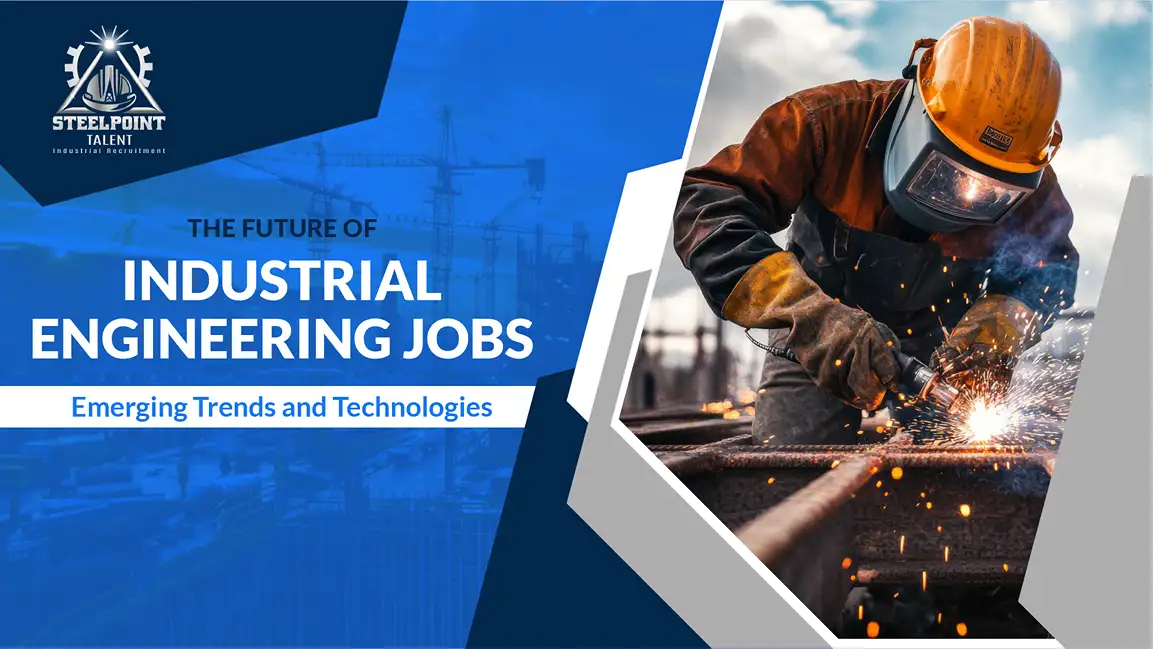Fabrication jobs form the backbone of modern heavy industries, powering sectors such as construction, mining, oil and gas, defense, naval engineering, and municipal infrastructure. These roles go far beyond simply shaping metal—they involve the creation of large-scale structural frameworks as well as the fine-tuned precision of engineered assemblies that demand accuracy and innovation. As global projects become increasingly ambitious and performance-driven, the demand for highly skilled fabricators is rising, making this profession a vital link between design, durability, and real-world functionality.
For procurement heads, engineering managers, and project contractors, the quality of fabrication work has a direct impact on supply chain efficiency, project timelines, and overall return on investment. A workforce equipped with advanced technical expertise in fabrication jobs ensures durability, safety, and cost-effective outcomes, all of which are vital in high-stakes environments where downtime and errors are costly and can have severe consequences.
This guide provides a clear roadmap for individuals looking to build a career in fabrication. Whether entering the field through entry-level positions or pursuing specialized paths such as welder fabricator jobs or metal fabricator jobs, readers will find practical steps to acquire the right skills, certifications, and hands-on experience. By understanding the pathways into this trade, decision-makers can better align talent strategies with the long-term needs of their industries.
Key Roles and Responsibilities in Fabrication Careers
Fabrication is the process of cutting, shaping, and assembling raw materials, usually metals, into parts or finished products for use in heavy industries. Unlike standard manufacturing, which is generally based on mass production, fabrication jobs value accuracy, modification, and structural integrity. These tasks are necessary in industries such as shipbuilding, offshore oil platforms, mining equipment manufacturing, defense infrastructure, and municipal projects.
Fabrication jobs offer a wide range of entry points, depending on skills, certifications, and interests. For example, individuals may pursue metal fabricator jobs, which involve working with sheet metal, structural beams, or heavy plate steel to create frameworks and assemblies. Others may choose specialized paths in welder fabricator jobs, where the emphasis is on welding techniques combined with fabrication processes to deliver strong, durable joints in demanding applications, such as pipelines, pressure vessels, and naval vessels.
For procurement leaders and project contractors, the value of skilled professionals in fabrication jobs lies in their ability to translate engineering drawings into high-performing physical assets. Accurate fabrication ensures that machinery, structures, and critical components meet industry standards, pass safety inspections, and perform under extreme operating conditions.
As companies implement automation and digital design, the range of fabrication jobs increases. Modern fabricators are required to use CNC machinery, 3D modeling software, and sophisticated metals. This combination of traditional skills and innovative technology explains why these jobs remain important for ensuring operational efficiency and long-term project success.
Essential Expertise and Certifications for Metal and Welding Professionals
Building a career in fabrication jobs requires a combination of formal education, technical certifications, and practical experience. At the entry level, most employers expect at least a high school diploma or equivalent, with a strong foundation in mathematics, reading comprehension, and mechanical reasoning. These basics are essential for interpreting blueprints, calculating dimensions, and ensuring accuracy in fabrication projects.
For those seeking to stand out, vocational training or certification programs are highly valuable. Courses in welding, CNC machining, and blueprint reading equip candidates with practical skills that align directly with industry needs. Specialized training also opens doors to metal fabricator jobs, where precision cutting, bending, and assembly of metal structures are central responsibilities. Similarly, individuals seeking welder fabricator jobs benefit from certifications that demonstrate mastery of welding techniques across various materials and environments.
Apprenticeships perform a significant role in building job-ready skills. Working under the supervision of experienced professionals enables trainees to apply classroom information in real-world settings. This method is especially critical in industries with strict quality and safety criteria, such as oil and gas, defense, and mining.
In addition to technical knowledge, successful applicants for fabrication jobs must have attention to detail, problem-solving ability, and physical dexterity. Employers seek flexibility as fabrication increasingly uses digital technology such as CAD modeling, automation, and robotic welding. In certain areas, formal trade credentials, such as a Certificate III in Engineering – Fabrication Trade, are needed to rise to supervisory or specialized positions.
Understanding these certification routes represents an essential for decision-making. Investing in skilled people not only improves project delivery but also lowers long-term costs by reducing rework, increasing safety compliance, and assuring long-term outcomes.
Step-by-Step Pathways to Enter Metal and Welding Trades
Launching a career in fabrication jobs involves a structured pathway that blends education, training, and on-the-job experience. For many professionals, the journey begins with developing a solid academic foundation. High school courses in mathematics, physics, and technical drawing provide the foundational skills necessary to interpret blueprints, calculate tolerances, and comprehend mechanical systems.
The next step is enrolling in vocational or technical programs that specialize in welding, metalwork, or fabrication technologies. These programs introduce students to key concepts such as material science, CNC machining, and safety procedures. Graduates of these programs are well-prepared to pursue entry-level metal fabricator jobs, where they gain hands-on experience with structural frameworks, sheet metal, and precision components.
For those interested in combining welding expertise with fabrication, welder fabricator jobs provide a strong starting point. Apprenticeships in this area are particularly valuable, as they allow individuals to learn directly from experienced tradespeople while applying skills in real-world industrial environments. Many apprenticeships also lead to permanent roles, giving workers both employment stability and professional credibility.
Securing entry-level fabrication jobs often requires proactive networking and strategic job search efforts. Trade schools, industry associations, and job boards are effective channels for connecting with potential employers. For decision-makers in heavy industries, partnering with workforce specialists ensures access to talent that is already trained in the latest fabrication techniques and technologies.
Ultimately, continuous education and certification are essential for sustained professional growth. Upskilling professionals sets them up for leadership positions and greater income possibilities, whether through advanced welding certificates, CAD training, or credentials in automated manufacturing. Employers benefit from improved project outcomes, increased safety compliance, and a quantifiable return on investment when they encourage this professional development.
Evaluating Career Stability, Demand, and Earning Potential
For individuals entering the workforce, fabrication jobs offer a career path that is both accessible and rewarding. Unlike many technical fields that demand advanced degrees, fabrication emphasizes practical skills, certifications, and hands-on expertise. This makes the trade appealing to a wide range of candidates while still offering long-term growth and stability.
One of the strongest benefits of pursuing fabrication jobs is the diversity of opportunities across industries. Fabricators are essential in various industries, including construction, mining, oil and gas, aerospace, naval shipbuilding, and municipal projects. Within these sectors, professionals may choose paths such as metal fabricator jobs, where they work with structural steel and sheet metal, or welder fabricator jobs, which combine welding techniques with fabrication processes to meet the highest durability standards.
From an employment perspective, fabrication remains in high demand worldwide. As infrastructure expands and industries continue to modernize, the need for skilled fabricators ensures steady job security. At the same time, specialists with advanced certifications and experience can command higher salaries, making fabrication jobs an attractive option for those seeking both financial stability and career advancement.
The benefits of having qualified fabricators go beyond labor for project managers and companies. Efficient fabrication reduces downtime, minimizes material waste, and enhances overall project efficiency. Because of the clear correlation between artistry and return on investment, companies continue to promote their employees’ professional development and invest in skilled fabricators.
Top-Earning Roles in Metal and Welding Fabrication
Compensation in the fabrication jobs varies widely depending on specialization, experience, and industry demand. While many entry-level fabrication jobs offer steady wages and valuable career stability, the highest-earning roles are typically those that require advanced technical expertise, years of hands-on experience, or additional engineering qualifications. These positions not only reward individual professionals but also deliver measurable ROI for employers who rely on precision and efficiency in high-stakes projects.
One of the most lucrative career paths in the sector is industrial engineering. Unlike traditional shop-floor roles, industrial engineers bridge the gap between fabrication and systems optimization, designing and refining processes to maximize efficiency and productivity. This makes them one of the best-paid professionals connected to fabrication jobs, with median annual salaries approaching six figures in the United States. For organizations in the oil and gas or large-scale construction industries, their work translates into streamlined workflows, reduced material waste, and faster project delivery.
Skilled trades remain just as critical. Metal fabricator jobs, particularly those in structural steel and heavy equipment fabrication, command competitive salaries due to the precision and safety standards required. Similarly, welder fabricator jobs are consistently in demand across various industries, including shipbuilding, pipeline installation, and defense manufacturing. These professionals not only fabricate but also apply advanced welding techniques that ensure reliability under extreme conditions, from high-pressure vessels to offshore platforms. Their expertise often places them among the higher-paid specialists within fabrication.
Other high-paying roles include boilermakers, millwrights, ironworkers, and sheet metal mechanics. These trades require mastery of both fabrication and installation, often under challenging jobsite conditions. For example, millwrights who install and maintain complex machinery are crucial to the mining and energy sectors, where unplanned downtime can result in millions of dollars in costs. Employers are willing to invest in top-tier talent in these roles because the cost of failure far outweighs the wages of a skilled professional.
Ultimately, the upper end of salaries within fabrication jobs reflects more than personal skill—it represents the strategic importance of fabrication to an industry’s overall performance. For procurement heads, engineering managers, and contractors, securing access to highly qualified fabricators ensures safer projects, stronger compliance with regulatory standards, and long-term cost efficiency.
Advancing from Shop Floor to Specialized Fabrication Leadership
The possibility of upward mobility is one of the most significant benefits of this industry. Through education, certifications, and experience, many professionals begin in entry-level shop-floor positions before gradually developing into technical, engineering, or managerial roles.
For example, individuals in metal fabricator jobs often start with sheet metal work or structural assembly. With advanced skills in CNC machining, robotic cutting, or precision forming, they can transition into leadership positions that oversee production quality and team performance. Specialized expertise in metal fabricator jobs also opens doors to industries like defense, mining, and large-scale equipment manufacturing.
Likewise, professionals in welder fabricator jobs can progress beyond standard welding tasks by pursuing certifications in TIG, MIG, or underwater welding. This training enables them to work in high-value areas such as aerospace, offshore energy, and shipbuilding. The demand for skilled talent in welder fabricator jobs remains strong, as industries rely on precise welding under challenging conditions to ensure safety and efficiency.
Both metal fabricator jobs and welder fabricator jobs provide a pathway to higher wages, project management roles, or even engineering careers. As digital fabrication and automation become more integrated, those who continuously expand their skills remain at the forefront of industry demand.
Maximizing ROI Through Experienced Metal and Welding Professionals
The quality of fabrication work directly influences the success of projects in various sectors, including construction, mining, oil and gas, naval, and municipal operations. Skilled professionals are crucial for boosting efficiency, enhancing safety, and optimizing cost management.
One key benefit is reduced downtime. Experienced employees in metal fabricator jobs produce components accurately the first time, minimizing rework and keeping projects on schedule. Similarly, those in welder fabricator jobs apply advanced welding techniques to create strong, durable joints for pipelines, offshore structures, and naval equipment.
Compliance and safety are additional advantages. Professionals in metal fabricator jobs understand material properties, tolerances, and safety standards, reducing the risk of structural failures or regulatory issues. Likewise, welder fabricator jobs that involve specialized certifications, such as TIG or MIG welding, ensure long-lasting performance and fewer repairs over time.
Cost control is another important factor. Skilled fabricators optimize material use and assembly processes, which automatically extends product life while reducing waste. Both metal fabricator jobs and welder fabricator jobs play an impressive role in maintaining high-quality outputs efficiently, which ultimately contributes to long-term operational savings.
Finally, investing in skilled professionals creates workforce stability. Employees in metal fabricator jobs and welder fabricator jobs are better equipped to adapt to automation, CAD design, and robotic welding, allowing companies to scale operations while maintaining quality and safety standards.
Training, Certifications, and Tools to Enhance Fabrication Careers
Building a sustainable career in fabrication jobs requires continuous learning and access to the right resources. As industries adopt advanced technologies and stricter quality standards, professionals who stay current with training and certifications are best positioned for long-term success. For employers, encouraging workers to leverage these resources ensures stronger project outcomes and maximizes return on workforce investments.
Trade schools and vocational institutions remain one of the most reliable pathways for foundational training. Programs in welding, blueprint reading, and CNC machining offer a direct entry point into metal fabrication jobs, equipping students with the technical knowledge necessary to work with structural steel, sheet metal, and heavy equipment. Specialized welding courses also prepare individuals for welder fabricator jobs, where mastery of MIG, TIG, and other welding techniques is crucial for producing safe and durable assemblies.
Industry associations and certification bodies further enhance credibility. Credentials such as AWS (American Welding Society) certifications or regional qualifications like the Certificate III in Engineering – Fabrication Trade validate an individual’s skill level in fabrication jobs. For employers, these certifications act as a benchmark, ensuring that hires meet the required technical and safety standards.
Online resources have also become increasingly important. Many platforms now offer virtual training modules, video demonstrations, and forums where professionals can exchange insights and knowledge. These resources are particularly useful for individuals in metal fabrication jobs who need to update their knowledge of CNC technology or fabrication software, as well as for workers in welding and fabrication jobs who must stay current with evolving welding codes and inspection standards.
Finally, industry-specific recruitment partners play a crucial role. For decision-makers seeking to build or strengthen their fabrication workforce, firms like Steelpoint Talent provide access to qualified candidates for both entry-level and specialized fabrication jobs. By connecting employers with professionals who already possess the necessary skills and certifications, these partnerships reduce hiring risks and expedite project readiness.
Building the Future of Metal and Welding Fabrication Careers
The pathways into fabrication jobs are clear, but success requires a combination of technical training, hands-on experience, and ongoing development. For individuals, this means opportunities to advance into specialized roles such as metal fabricator jobs or welder fabricator jobs, where demand remains strong and salaries reflect the value of expertise. For employers, investing in skilled fabricators leads to safer projects, fewer delays, and measurable cost savings across the lifecycle of infrastructure and equipment.
As heavy industries continue to evolve with automation, digital fabrication, and advanced materials, the demand for qualified talent is expected to increase. Organizations that prioritize workforce development in fabrication jobs will gain a competitive advantage, while professionals who embrace continuous learning will unlock rewarding, future-proof careers. Steelpoint Talent remains a trusted partner in connecting both sides, ensuring the right talent aligns with the right projects for maximum impact.

